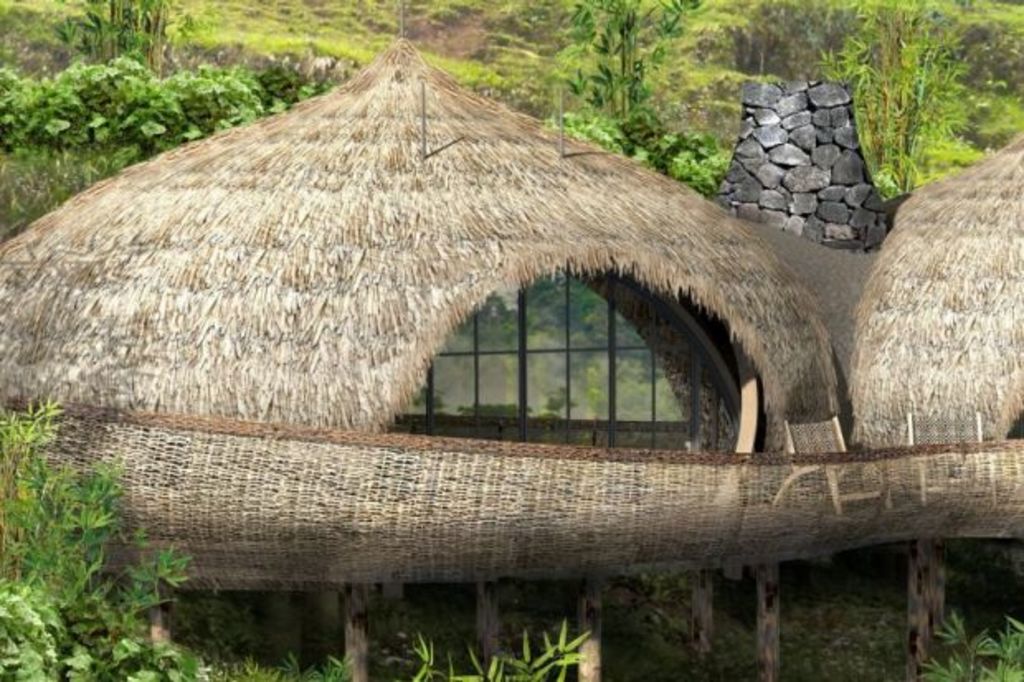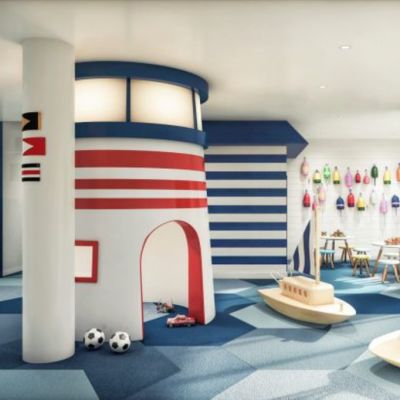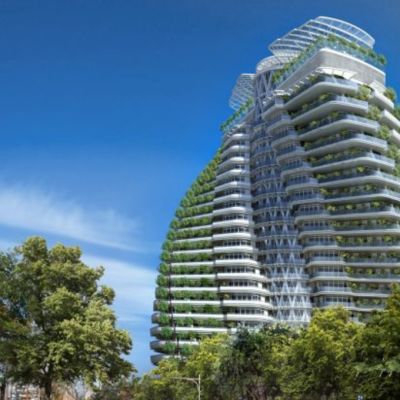How Rwanda's luxury Bisate Lodge is ecotourism done right

In northern Rwanda, the finishing touches are being put on a cluster of buildings fit for a king.
Bisate Lodge is a collection of six luxury forest villas inspired by the traditional architecture of the King’s Palace at Nyanza, the former capital of the landlocked east African country.
On schedule to welcome the first paying guests in June, the striking structures are shaped like upside-down chestnuts on stubby legs, each with floor-to-ceiling glass on one side and private decks offering views of the lush, mountainous landscape.
The project is veteran ecotourism operator Wilderness Safaris’ first foray into Rwanda, a country still recovering from the 1994 genocide in which an estimated 800,000 people were killed.
Wilderness Safaris chief executive officer Keith Vincent describes today’s Rwandan government as inspiring, organised, accountable and visionary.
“We have felt nothing but welcomed by the country and its people and are truly excited to contribute to the momentum and resurgence of this tiny nation,” Vincent says.
Lodge guests will be able to take part in organised treks to view mountain gorillas in their natural habitat in the rainforests of the Volcanoes National Park in the Albertine Rift. As part of the tourism venture, the company has pledged to undertake an extensive reforestation program.
Vincent says the team knew that to make the project work, it needed a “charismatic creature” equal to the large mammals of the savannah.
“The mountain gorilla certainly fits this brief and we knew that if we organised a lodge circuit around this species, which shares 98 per cent of our DNA, we could bolster tourism numbers to the region.”
After consulting community members, Wilderness Safaris bought 27 hectares of steep subprime agricultural land with no dwellings from more than 100 families.
Vincent says the deal injected more than $US500,000 ($664,000) into the local economy, money which would go towards buying land, building houses, developing businesses and educating students. About 200 temporary jobs have been created during the construction period, with 50 permanent positions planned.
Guests will pay from $US1400 a person a night for a shared villa.
“Culture, in the form of traditional architecture, craft and beliefs, has been incorporated into the lodge design and interiors and will be an integral part of our guest experience,” Vincent says.
Each villa is 91 square metres internally, comprising a bedroom, reception space and bathroom, all warmed by a central fireplace. The windows and decks are positioned to capture views of Mount Bisoke, an active volcano that straddles the border of Rwanda and the Democratic Republic of Congo.
South Africa-based architect Nick Plewman says the project provided an opportunity to tease out a contemporary architectural response to the stimuli of a primordial volcanic landscape, the great primates that dwell there and an all-but-lost human heritage.
The spherical, thatched structures echo the country’s hilly landscape. Bisate’s amphitheatre setting also informs the architecture, with the forms and outlines of the lodge accentuating the spectacular natural surroundings. While the exteriors draw heavily on the design of the old palace, the interiors have a distinctly modern sensibility.
Colourful textiles and rich textures play a starring role in lead interior designer Caline Williams-Wynn’s vision.
“The emerald green colour in the textiles and chandeliers is reminiscent of the verdant greens of the rainforests, as well as the vibrant markets that dot the villages throughout the country,” says Williams-Wynn, whose company Artichoke is also based in South Africa.
Recycled glass will be used to create eye-catching green chandeliers. Many of the furnishings will be decorated using “imigongo”, a traditional Rwandan art form that uses cow dung to produce geometric designs. Once the dung has hardened, different coloured soils are used to decorate the shapes.
Also part of the team is Rwandan fashion entrepreneur Teta Isibo. Named by Forbes as one of Africa’s 30 most promising entrepreneurs for 2017, Isibo creates jewellery, home decor and accessories under her label, Inzuki Designs. She says she views her brand as part of a wider Rwandan cultural renaissance.
Isibo has been appointed to source locally produced items to bring Rwandan flair to the interior design at Bisate Lodge. She will also source items for guests to buy.
“As a designer who focuses on fusing traditional Rwandan craftsmanship with contemporary design, the Bisate project is super exciting for me as I feel its design embodies this same principal,” Isibo says. “I’d love to achieve a strong local flavour … to make the lodge look and feel authentically Rwandan.”
We recommend
We thought you might like
States
Capital Cities
Capital Cities - Rentals
Popular Areas
Allhomes
More










